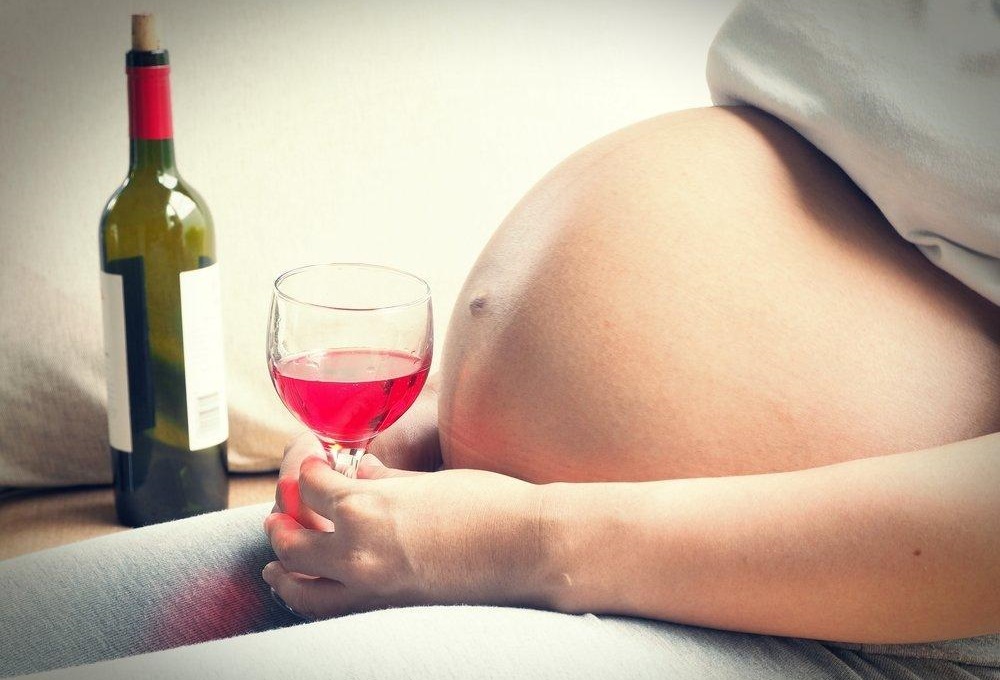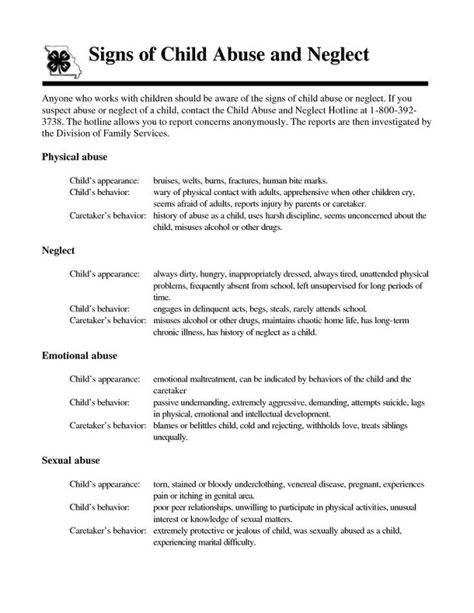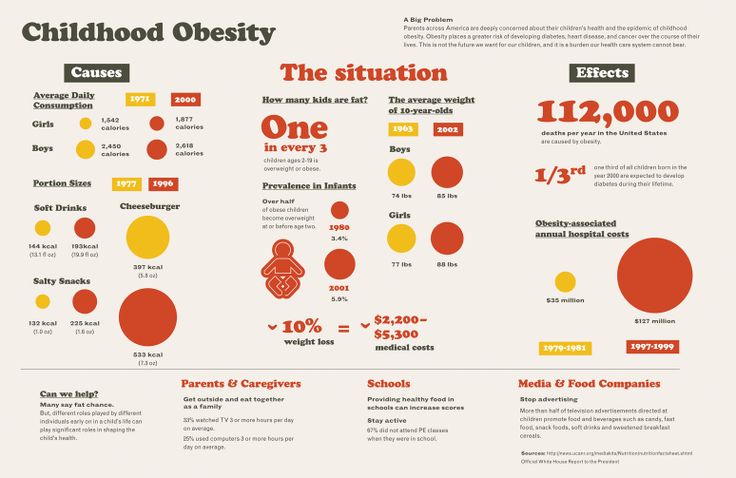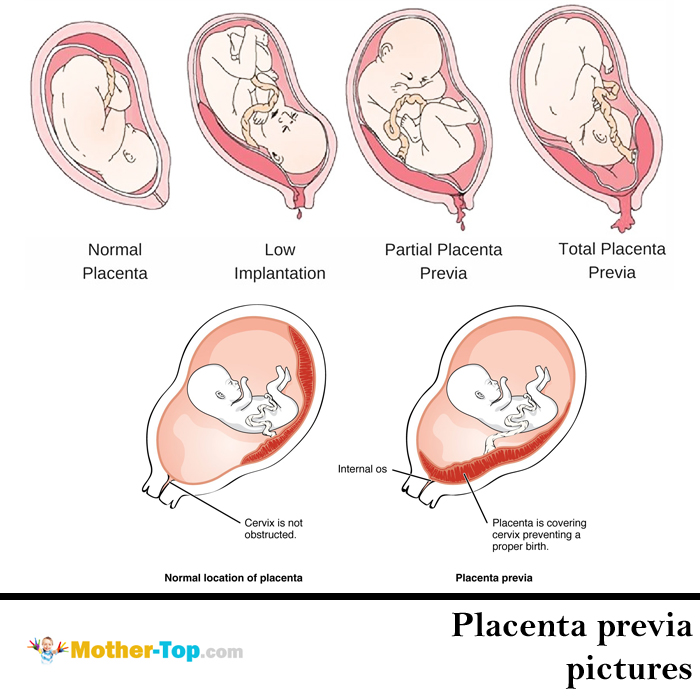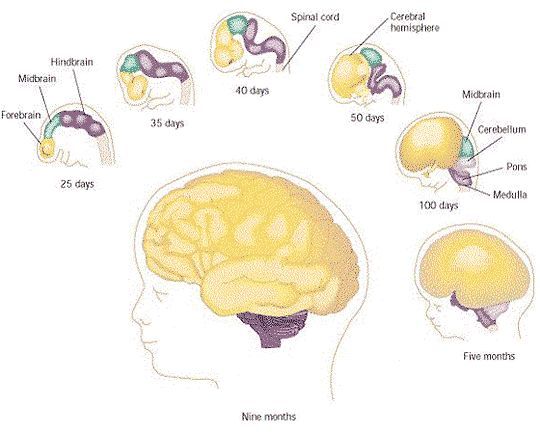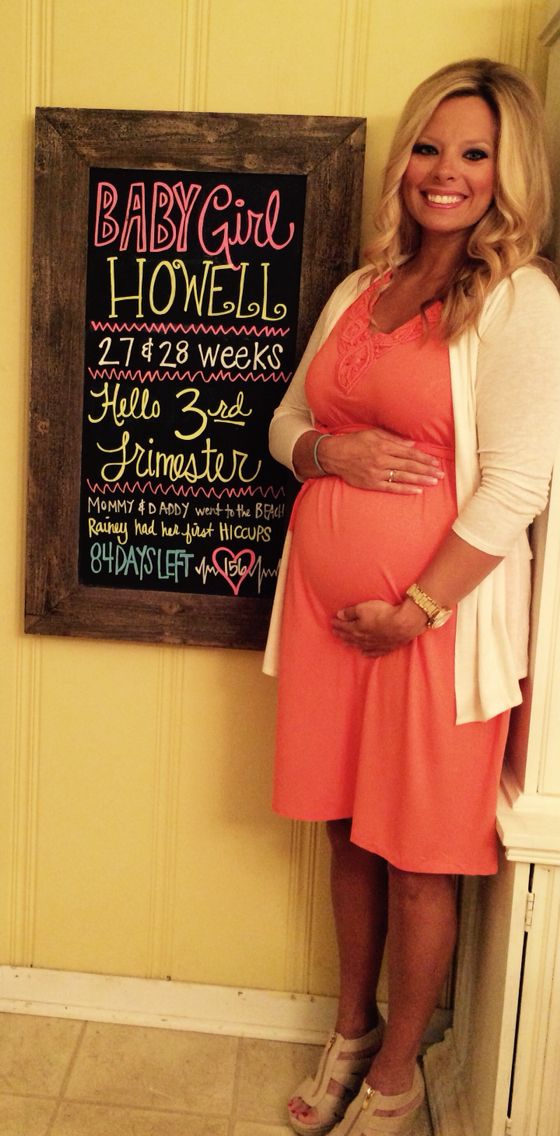Drinking alcohol in early pregnancy
Drinking a little alcohol early in pregnancy may be okay
The usual message to pregnant women: Don't drink any alcohol. Clearly alcohol use can cause major problems for the pregnant woman and her baby.
While not drinking any alcohol during pregnancy is the safest choice, small amounts of alcohol early in pregnancy may be less risky to the mother’s health and the health of their babies than previously believed. Minimal alcohol use during the first trimester doesn’t appear to increase the risk for high blood pressure complications, or premature birth or low birth weights. That’s the findings of a study previously published in the journal Obstetrics and Gynecology.
Dr. Fergus McCarthy and colleagues from Ireland, England, New Zealand, and Australia compared birth outcomes among 5,628 women who were pregnant for the first time between 2004 and 2011. More than half of them reported drinking alcohol during the first three months of pregnancy. Some (19%) reported occasionally drinking alcohol. Twenty-five percent reported low alcohol consumption, or three to seven drinks per week ("a drink" defined as a glass of wine or a little less than a 12-ounce bottle of beer). Another 15% reported having more than seven drinks per week.
Rates of premature birth, babies with low birth weight or small size, and pre-eclampsia—a potentially life-threatening condition in which a pregnant woman develops high blood pressure—were similar across the alcohol consumption categories
The potential hazard of alcohol during pregnancy
For the past few decades, women have been urged to avoid alcohol during pregnancy. Respected medical societies like the American College of Obstetricians and Gynecologists and the United Kingdom's Royal College of Obstetricians and Gynaecologists Women both say women shouldn't drink any alcohol during pregnancy. The main reason for this is that heavy use of alcohol during pregnancy has been linked to a long-term and irreversible condition known as fetal alcohol syndrome (FAS).
Babies with FAS may be born early. They are often underweight and don't grow well. Some have characteristic facial features like a thin upper lip and small eye openings, or the small vertical groove between the upper lip and the nose may be flattened. Other physical signs that go along with fetal alcohol syndrome include a small head, short nose, and problems with the way the heart or the joints are formed.
Children with FAS are slower to learn language skills than other kids. When they reach school age they often have learning disabilities and difficulty with attention, memory and hyperactivity. They are more likely to have poor coordination and a hard time with problem-solving. And some have trouble making friends and relating to other kids. All of which can make school a really difficult time.
Despite this clear advice, up to half of women drink some alcohol during pregnancy.
Putting it into practice
How clear is the medical evidence supporting strict abstinence from alcohol during pregnancy? Not very strong. Other studies suggest pregnant women who have an occasional drink don't harm themselves or their baby. A 2012 Danish study, for example, found that low to moderate alcohol consumption during pregnancy did not affect executive functioning among 5-year-olds. Executive functioning is a catchall term that describes the ability to perform activities such as planning, organizing, strategizing, remembering details, and managing time.
Other studies suggest pregnant women who have an occasional drink don't harm themselves or their baby. A 2012 Danish study, for example, found that low to moderate alcohol consumption during pregnancy did not affect executive functioning among 5-year-olds. Executive functioning is a catchall term that describes the ability to perform activities such as planning, organizing, strategizing, remembering details, and managing time.
However, since it's not clear how much alcohol it takes to cause problems, the best advice remains the same: women should avoid alcohol if they are pregnant or might become pregnant.
For the many women that drank some alcohol before they realized they were pregnant, this and other studies should reassure them. They almost surely did no harm to their unborn children.
Image: The Good Brigade/Getty Images
Drinking alcohol while pregnant - NHS
Experts are still unsure exactly how much – if any – alcohol is completely safe for you to have while you're pregnant, so the safest approach is not to drink at all while you're expecting.
Is it safe to drink alcohol when pregnant?
The Chief Medical Officers for the UK recommend that if you're pregnant or planning to become pregnant, the safest approach is not to drink alcohol at all to keep risks to your baby to a minimum.
Drinking in pregnancy can lead to long-term harm to the baby, with the more you drink, the greater the risk.
How does alcohol affect my unborn baby?
When you drink, alcohol passes from your blood through the placenta to your baby.
A baby's liver is one of the last organs to develop and does not mature until the later stages of pregnancy.
Your baby cannot process alcohol well, and exposure to alcohol can seriously affect their development.
Drinking alcohol during pregnancy increases the risk of miscarriage, premature birth and your baby having a low birthweight. It can also affect your baby after they're born.
It can also affect your baby after they're born.
Drinking during pregnancy can cause your baby to develop a serious condition called foetal alcohol spectrum disorder (FASD).
FASD can cause problems with:
- learning and behaviour
- joints, bones, muscles and some organs
- managing emotions and developing social skills
- hyperactivity and impulse control
- communication, such as problems with speech
The risk is likely to be greater the more you drink.
How to avoid alcohol in pregnancy
It may not be as difficult as you think to avoid alcohol completely during pregnancy, as many women go off the taste of alcohol early in pregnancy.
Most women do give up alcohol once they know they're pregnant or when they're planning to become pregnant.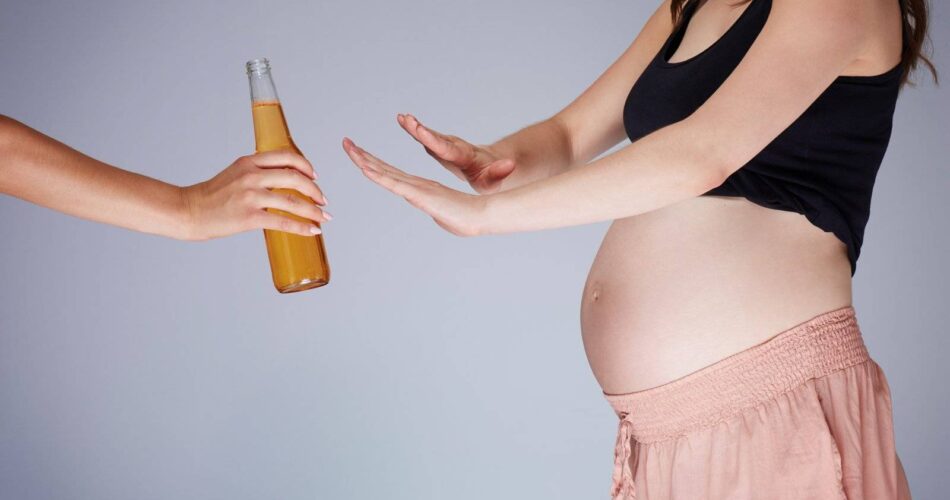
Women who find out they're pregnant after already having drunk in early pregnancy should avoid further drinking.
However, they should not worry unnecessarily, as the risks of their baby being affected are likely to be low.
If you're concerned, talk to a midwife or doctor.
What is a unit of alcohol?
If you do decide to drink when you're pregnant, it's important to know how many units you are consuming.
One UK unit is 10 millilitres (ml) – or 8 grams – of pure alcohol. This is equal to:
- just under half a pint of cider (218ml) at 4.5% alcohol by volume (ABV: you can find this on the label)
- just under half a pint of beer (250ml) at 4% ABV
- a single measure of spirit (25ml), such as whisky, gin, rum or vodka, at 40% ABV
- just under half a standard glass of wine (76ml) at 13% ABV
You can find out how many units there are in different types and brands of drinks with the Drinkaware unit and calorie calculator.
If you have an Android smartphone, iPhone, iPad or iPod touch, you can download the free One You Drinks Tracker from Google Play or the iTunes App Store. It allows you to keep a drinks diary and get feedback on your drinking.
Read more about alcohol units.
Alcohol support services
If you have difficulty cutting down what you drink, talk to a midwife, doctor or pharmacist.
Confidential help and support is also available from local counselling services:
- Drinkline – the national alcohol helpline; if you're worried about your own or someone else's drinking, call this free helpline on 0300 123 1110 (weekdays 9am to 8pm, weekends 11am to 4pm)
- We Are With You – a UK-wide treatment agency that helps individuals, families and communities manage the effects of alcohol and drug misuse
- Alcoholics Anonymous (AA) – a free self-help group; its "12-step" programme involves getting sober with the help of regular support groups
Find your nearest alcohol support services.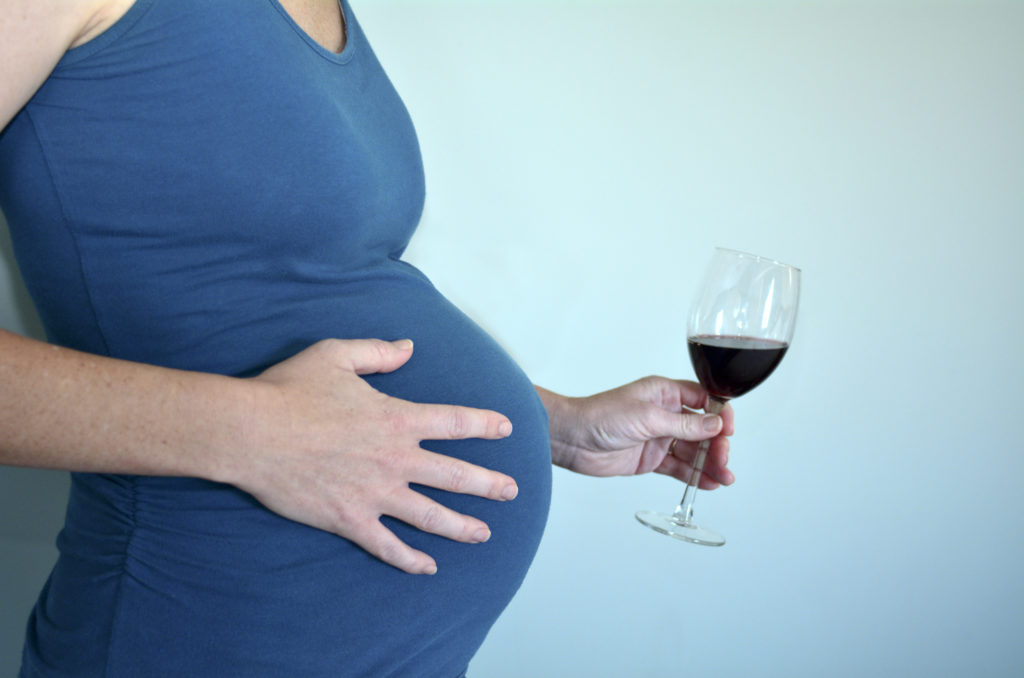
Read more advice on cutting down your drinking.
Find maternity services near you.
Page last reviewed: 29 January 2020
Next review due: 29 January 2023
ALCOHOL AND PREGNANCY - Outpatient medical facility
The fact that you can not drink alcohol during pregnancy is known to most. However, different situations can arise in life: one woman is planning a pregnancy, continuing to drink alcohol on holidays in order to avoid uncomfortable questions; another drinks a glass of wine, unaware that she is already pregnant; the third during pregnancy cannot cope with the desire to drink beer, believing that "a little bit is possible." Let's look at these situations in more detail.
Alcohol consumption during pregnancy planning.
Alcohol is a toxin that adversely affects the human reproductive system. In women, alcohol consumption leads to disruption of the menstrual cycle and hormonal balance, which significantly affects the ability to conceive. There are also opinions that even episodic alcohol consumption can have a negative effect on the eggs, leading to their inferiority. Also, alcohol consumption affects the male reproductive system, significantly reducing the number of sperm capable of fertilization. Therefore, a couple planning a pregnancy should stop drinking alcohol at least 3 months in advance in order to increase the likelihood of conception.
There are also opinions that even episodic alcohol consumption can have a negative effect on the eggs, leading to their inferiority. Also, alcohol consumption affects the male reproductive system, significantly reducing the number of sperm capable of fertilization. Therefore, a couple planning a pregnancy should stop drinking alcohol at least 3 months in advance in order to increase the likelihood of conception.
Drinking alcohol in the first weeks after conception.
Without a special examination, a woman usually discovers the fact of pregnancy at 3 weeks after conception, when the next menstruation does not come. By this time, the embryo has already firmly attached to the uterine cavity and began to receive nutrition from the mother's blood. If negative factors, including alcohol, affect him before the moment of attachment, then this will lead to his rejection and death, and he will simply leave the uterus with the next menstruation. Thus, a woman may not know that she was pregnant.
According to most scientists, if alcohol did not disrupt the attachment process and the embryo continued to develop, then this would not lead to the formation of malformations in it. Thus, alcohol accidentally drunk during the first two weeks after conception will either lead to the termination of pregnancy or will not affect its further development.
Alcohol use in early pregnancy.
As mentioned above, as early as the 3rd week after conception, the embryo begins to come into contact with maternal blood. This means that all the substances in the mother's blood come to him. including ethyl alcohol. From the 3rd to the 13th week of development, the laying of all the main systems of the body of the unborn child occurs and the effect of alcohol no longer leads to rejection and death of the embryo, but to the formation of malformations and deformities of the nervous, cardiovascular, and digestive systems.
Alcohol use in late pregnancy.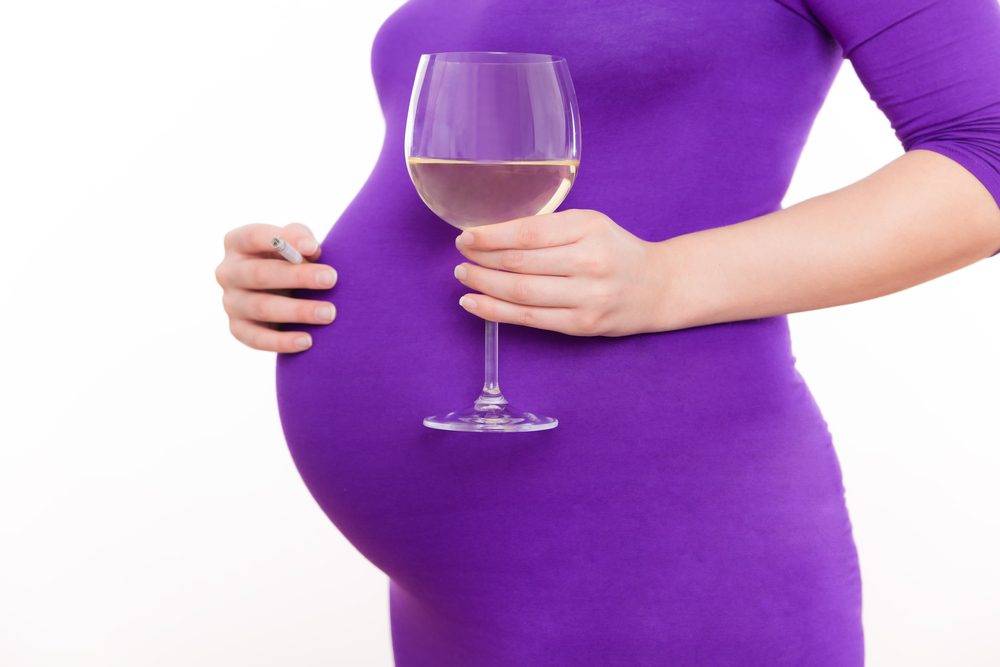
The negative impact of alcohol on the course of pregnancy is observed after the 13th week. Ethanol and its decay products lead to spasm of the vessels of the placenta and umbilical cord, impairing the delivery of oxygen and nutrients, leading to a delay in the development of the fetus, disruption of its nervous system and brain. A prolonged lack of oxygen can even lead to the death of a child. Violation of the nervous system in the prenatal period leads to problems in the later life of the child - such children have reduced stress resistance, problems in learning, in communication, a tendency to mental illness and alcohol consumption.
The systematic use of alcohol during pregnancy leads to the formation of fetal alcohol syndrome in a child - this is a complex of physical, mental and intellectual abnormalities in a child that cannot be treated.
Thus, alcohol and pregnancy are not compatible and it is necessary to refuse it at the planning stage.
You need to understand that one glass of wine, drunk before 2 or after 13 weeks of pregnancy, most likely will not lead to disastrous consequences, but is it worth the risk? Remember that your child will “drink” half of this glass.
Is it possible to drink alcohol during pregnancy and what are the possible consequences?
Online consultation with a specialist on your issue!
License number: LO-77-01-019036
Although many women dream of carrying and giving birth to a healthy child, not everyone can protect the fetus during pregnancy. The fact is that not all girls can give up bad habits. And this negatively affects the child. Therefore, even at the stage of pregnancy planning, in case of alcohol abuse, it is worth calling a narcologist at home. He will help you deal with the problem anonymously, that is, he will not require your documents and will not tell anyone about his visit and its reason.
COST OF TREATMENT
Unfortunately, alcohol can affect the development of the fetus, even if the woman is not addicted. In the first weeks of pregnancy, she may not even know that she is carrying a child. Therefore, he may drink alcohol. Doctors recommend planning a pregnancy and about 2 weeks before the planned moment of conception, stop drinking alcohol.
In the first weeks of pregnancy, she may not even know that she is carrying a child. Therefore, he may drink alcohol. Doctors recommend planning a pregnancy and about 2 weeks before the planned moment of conception, stop drinking alcohol.
The fact is that alcoholic drinks have a negative effect on the fetus from the very first days of its development. Alcohol increases the risk of miscarriage and premature birth. The fact is that ethanol makes it difficult for the embryo to attach to the uterus. In the first week of pregnancy, the egg travels through the fallopian tubes. Alcohol with blood penetrates into the zygote. A woman may suffer from pulling pains in the lower abdomen. In some cases, the pregnancy cannot be saved.
If the expectant mother abuses alcohol, the child may be born as an alcoholic. From about the second week of pregnancy, the fetus begins to receive everything it needs from the mother's body - oxygen and nutrition. All this is transmitted through the blood, and the alcohol that has entered it too.
Drinking alcohol during pregnancy is fraught with the development of anomalies of the face (its features are laid in the period from 28 to 49 days), internal organs. And also alcohol can lead to deviations in the work of the nervous system, a delay in physical and mental development. A child born to a mother who abused alcohol may develop more slowly than his peers.
One of the most frequent consequences of drinking is heart and vascular system defects. Because of such deviations, the child will have many restrictions: physical activity, stress, excitement are prohibited. In some cases, surgery will be required to normalize the functioning of the heart.
Online consultation with a specialist
for your question!
License number: LO-77-01-019036
If a woman abuses alcohol, a child with brain pathologies can be born. The baby may suffer from severe nervous disorders. This will affect his future life and relationships with others. As a result, the baby has problems with learning and remembering information, with the ability to concentrate on something and control emotions, with communication and socialization.
No doctor will be able to tell in advance what pathologies a child of an alcoholic mother will have. But if at conception both parents were in a state of intoxication, the child increases the risk of developing serious abnormalities.
Alcoholic parents are quite likely to have a disabled child. But in general, it does not matter how often a man and a woman drank. The bad ecological situation, the stresses of the expectant mother, other harmful effects of the outside world already bring a big risk for the normal development of the fetus, alcohol only increases it.
Many women believe that a small amount of alcohol in early pregnancy can not harm the fetus, especially if drinking occurs infrequently. In fact, everyone's body reacts differently to alcohol. If for some women a glass of wine affects the physical and psychological state, for others it can cause the development of pathologies. Therefore, doctors recommend completely abandoning bad habits (not only alcohol, but also cigarettes).